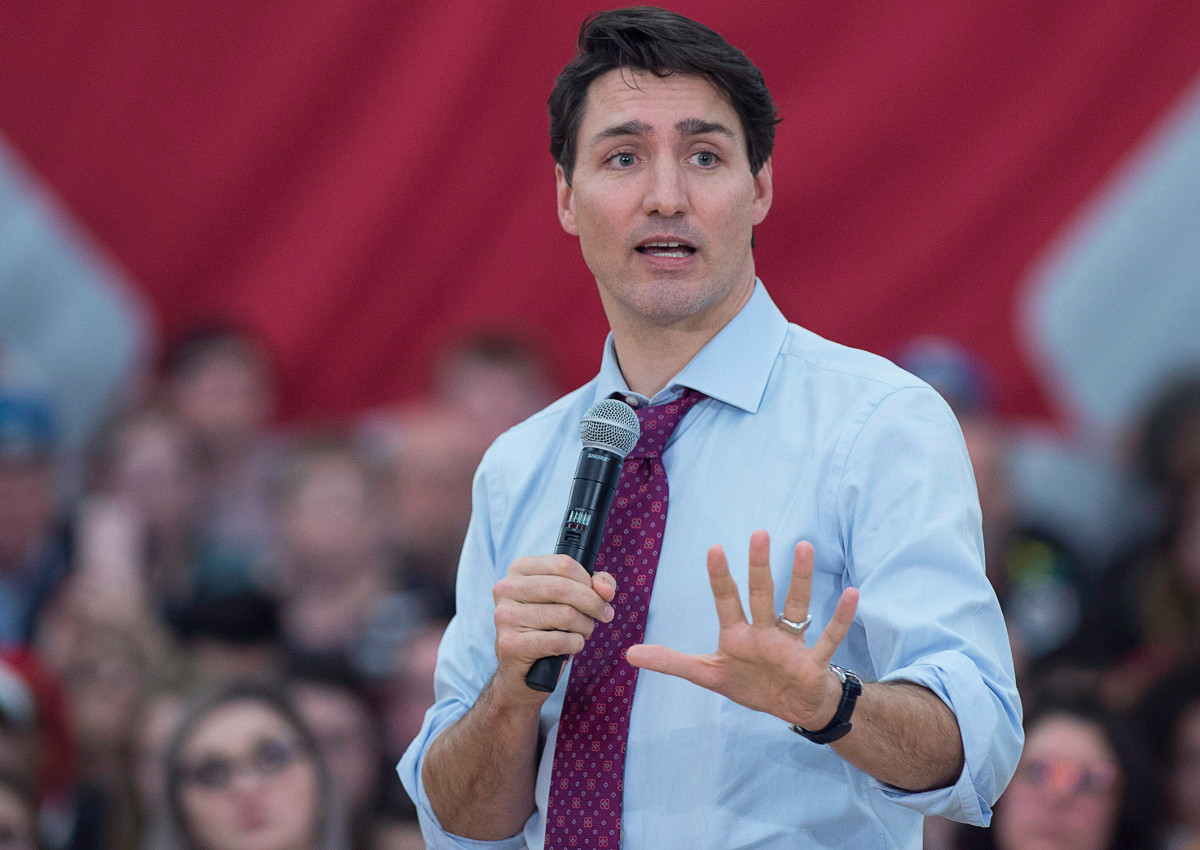Hundreds of international scientists have signed an open letter to Prime Minister Justin Trudeau which issues a warning about the international importance of a Canadian program on climate change.

The letter warns: “There is a crisis looming for Canadian climate and atmospheric research that will be felt far beyond Canada’s borders.”
READ MORE: 2017 was 2nd warmest in 137 years, NASA says
The letter was signed by 250 scientists and posted on the website of Evidence for Democracy. The Ottawa-based group describes themselves as “a community to champion science and smart decision-making in Canada.”
The letter goes on to state: “We are concerned that seven important research networks supported by the Government of Canada’s Climate Change and Atmospheric Research (CCAR) program are set to end in 2018.”
WATCH: Trudeau gets round of applause over climate change remark at UN

The CCAR provided funding to a variety of projects focused on the Arctic including a long-term look at such things as sea ice and snow cover, changes to land water and climate as well as temperature and other properties in the High Arctic.
The $35-million project, provided funding to seven projects, six of which will end in 2018. A seventh, the Polar Environment Atmospheric Research Laboratory, has seen its funding extended through 2019.
READ MORE: Climate-related disasters cost U.S. record $306B in 2017: NOAA
While the federal government earmarked an extra $70 million toward environmental research in 2017, the scientists say they are concerned the data continuity provided by the research will cease.
“Canada is uniquely placed to monitor the changing atmosphere in the high Arctic regions,” Dr. Clare Murphy, director of the Centre for Atmospheric Chemistry at the University of Wollongong in Australia, said. “As such, Canadian atmospheric and climate science plays a pivotal role in the global effort to understand our changing environment.”
WATCH: Trudeau tried to convince Trump the merits of fighting climate change

Dr. Sophie Godin-Beekmann, director of research at Centre National de La Recherche Scientifique in France, shares a similar sentiment.
“With the Montreal protocol, Canada has played a unique and pioneering role in the protection of our environment, she said. “Due to its location, Canada’s leadership in the study and monitoring of Arctic atmosphere has become even more important to our understanding of the rapidly evolving Arctic climate and environment.”
READ MORE: Canada’s climate change framework needs to be big deal in 2018, advocates say
Minister of Science Kirsty Duncan argues that the Trudeau government’s track record is unmatched.
“We are doing more to combat climate change than any Canadian federal government in history,” she said in a statement issued to Global News. “We are proud to have signed the Paris Accord and worked with our provinces and territories on a Pan-Canadian framework to address climate change, including putting a price on carbon pollution, accelerating the phase-out of traditional coal power and investing $2 billion in the Low Carbon Economy Fund.”
She says the federal government is well aware of the importance the Arctic plays as it works to address climate change.
“Our government will continue to support and invest in the actions necessary to address climate change, she said. “As the Arctic matters now more than ever because of climate change, we are working to move forward on an Arctic Policy Framework in which science will play a key role. This will be a whole of government approach to the Arctic, one that includes Indigenous voices and the role of traditional knowledge.”
- Life in the forest: How Stanley Park’s longest resident survived a changing landscape
- ‘Love at first sight’: Snow leopard at Toronto Zoo pregnant for 1st time
- Buzz kill? Gen Z less interested in coffee than older Canadians, survey shows
- Carbon rebate labelling in bank deposits fuelling confusion, minister says




Comments